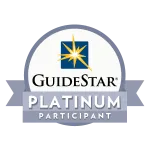
About Jacob Wetterling Resource Center
Be part of the #11forJacob movement
Jacob Wetterling Resource Center was founded to educate and assist families and communities to address and prevent the exploitation of children. JWRC continues to work to end all forms of child maltreatment through education, training and prevention while advocating for and serving children, adult survivors, and communities.
- Our Vision – End all forms of child abuse, neglect, and exploitation through training, education, advocacy, prevention and awareness, providing care and treatment for children, families, and adult survivors.
- Our Mission – We work to end all forms of child maltreatment through education, training and prevention while advocating for and serving children, adult survivors and communities. The Jacob Wetterling Resource Center has a proven history of helping kids and families.
- Values – We value children, we advocate for the missing, and we believe in the power of prevention.
Thank you for visiting Jacob Wetterling Resource Center. We are a Minnesota-based program that works to prevent crimes against children while connecting families of the missing and exploited to important resources.
Do reach out if you have a missing loved one.
Do reach out if you are a Minnesota family looking for resources around child exploitation.
Below please find a few resources that may be helpful to you as you seek out help. You may also want to reach out to your local Sexual Assault Advocacy Center, Domestic Violence Shelter, or Child Advocacy Center to learn about resources in your city and state.
VictimConnect: A referral helpline for victims of crime www.victimconnect.org
NCMEC: 24/7 hotline for families of missing children www.missingkids.org
Childhelp USA: 24/7 hotline to respond to child abuse www.childhelp.org
National Sexual Assault Hotline: Confidential 24/7 support www.rainn.org/resources
JWRC does not discriminate on the basis of race, color, national origin, religion, sex, disability, age, sexual orientation or gender identity in the delivery of services.
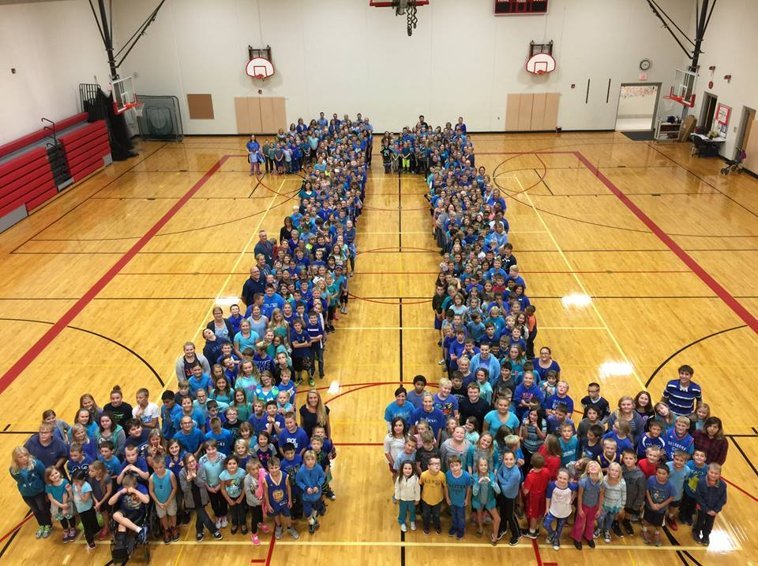

CHANGE THE WORLD
Be Part of the #11forJacob Movement
Jacob Wetterling loved sports. His dad coached his soccer team. He wanted to be a football player. He was a skilled hockey goalie. Jacob also believed in a fair and just world, a world where all children know they are special and deserve to be safe. We ask you to be part of #11forJacob. This movement centers around 11 simple traits that Jacob valued:
- Be fair
- Be kind
- Be understanding
- Be honest
- Be thankful
- Be a good sport
- Be a good friend
- Be joyful
- Be generous
- Be gentle with others
- Be positive
Bring #11forJacob to your school, business or organization. Download the poster or flier and share the movement.
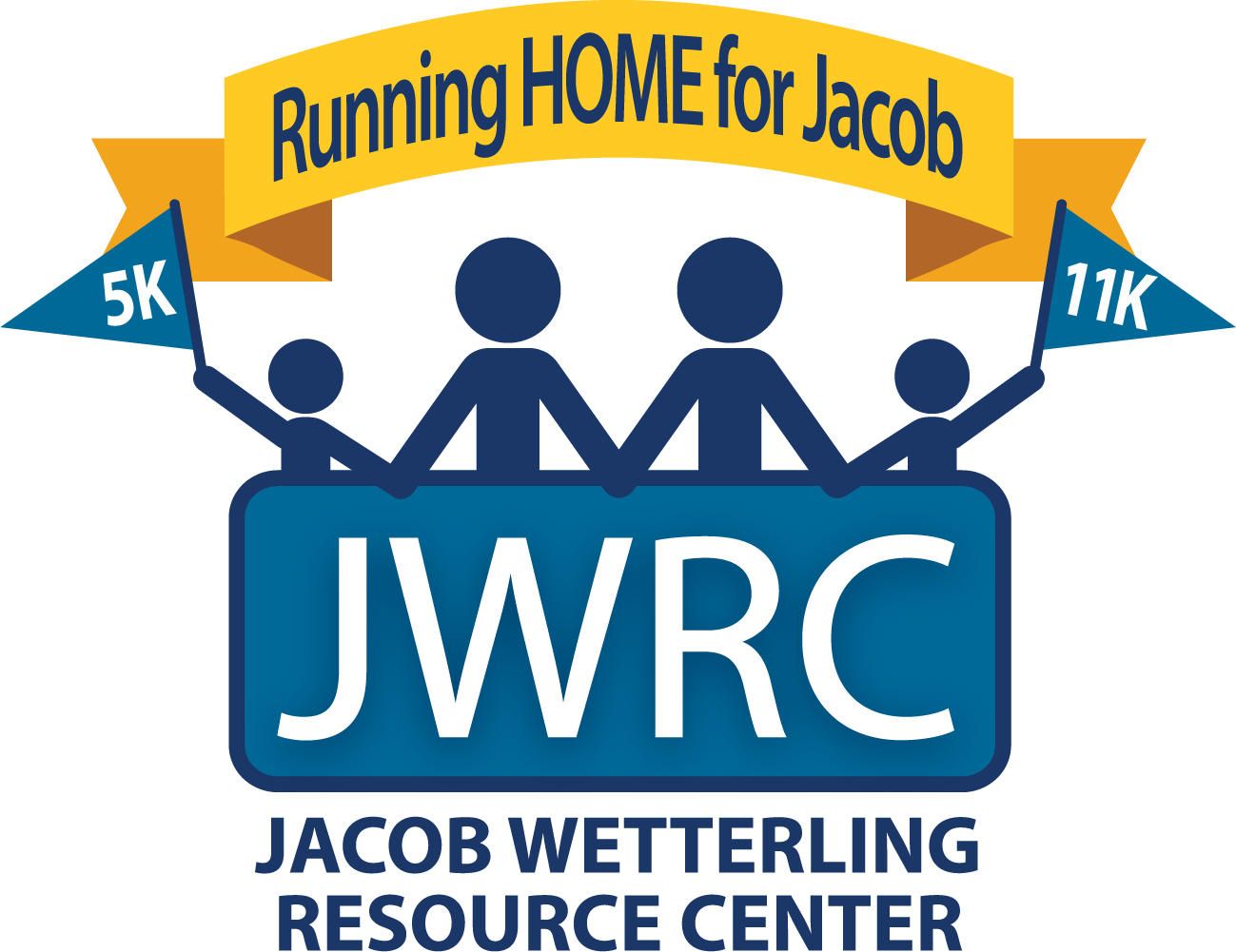
Running HOME for Jacob
Our Annual Race
Everyone is invited to our annual Running HOME for Jacob event! We are grateful for everyone who has supported this event through participation and sponsorship. Running HOME for Jacob has always been a day for everyone to come together as a community around Hope for Our Missing and Exploited (HOME), and to raise awareness and learn about the prevention of child maltreatment.

GET HELP NOW
Victim Assistance
We believe every person has the right to grow up free from harm to live out their full potential. JWRC works closely with law enforcement, national and local non-profit organizations, legislators and the media to assist victim families. Access to expert assistance and emotional support during the difficult process of locating a missing child or finding support for exploited children has a profound impact on victim families who often don’t know where to start.
JWRC can provide the following:
- Advocacy and support to families of the missing, those looking for resources or ways to support a child experiencing child abuse, and individuals who are currently experiencing or have experienced any type of child abuse or neglect.
- Education, talking points and resources on recognizing potential child abuse/maltreatment, online safety, support for caregivers, and teachable safety skills for children.
- Assistance with finding your local child protection agency or law enforcement agency for individuals needing information and support to report a child experiencing abuse or neglect.
- Referrals to local agencies and resources including Child Advocacy Centers (CACs) when appropriate.
- Family safety planning for online and personal safety needs. If caregivers have questions or concerns about safety scenarios as they arise, (a sex offender moving into the neighborhood, teen using technology in a way that puts them at risk, etc.) please reach out to talk through options and ideas.
How to Help
Be part of the #11forJacob movement
There are lots of ways to keep kids safe and to support the work we do at the Jacob Wetterling Resource Center:
Create a Safe Place for Children
- Talk to your children about online and body safety
- Celebrate differences and teach children empathy
Education
- Invite a JWRC speaker to your next corporate wellness event or meeting
- Sponsor a presentation for a local school or community group
Volunteer
- Volunteer in the JWRC office
- Volunteer in your community
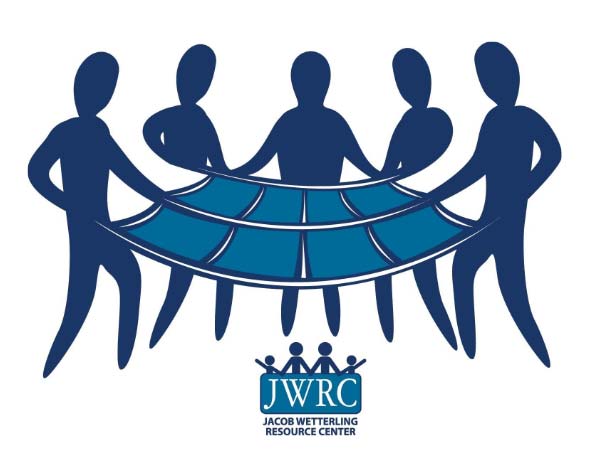
prevention education
Empower Me!
Empower Me! is JWRC’s prevention education curriculum for elementary schools.
JWRC started doing school-based prevention work in Minnesota in 1990. We based our prevention work on best practices nationally with 2 core beliefs:
- All of our materials and offerings should empower children, not make them fearful. We want kids to be smart, not scared.
- Personal safety should never rest solely on the shoulders of kids. It is the job of adults to keep kids safe. We can give kids tools, but adults need to own the problem of child abuse.
In 2010, we formalized our evidence informed prevention education and packaged it into a kit to make it accessible to schools in Minnesota and across the United States. The kit includes a script, a licensed Power Point presentation, a video, and a letter that goes home from principals so that teachers and other school staff can deliver Empower Me! classes in their own school districts.
Schools and community-based agencies are using Empower Me! in many ways. including:
A school buys an Empower Me! kit and has a staff member present the curriculum to students each year. Teachers are trained in FIRST, our mandated reporting training and parents are provided with the parent overview video to support their child’s learning.
- A Child Advocacy Center (CAC) purchases the Empower Me! kit and one of their advocates delivers the Empower Me! curriculum at local schools and youth-serving organizations.
- A group of homeschool families buys the Empower Me! kit and uses the materials to train their children in a cohort. Parents use the parent overview video to support what their children are
JWRC staff members deliver Empower Me! regularly in Minnesota. IN 2019, we offered Empower Me! at 13 different schools, faith communities, and summer camps and reached 3,415 kids in grades K-6.
A BRIEF HISTORY OF
JACOB WETTERLING RESOUCE CENTER
On Oct. 22, 1989, 11-year-old Jacob Wetterling was abducted from a group of three boys. In 2016, we finally were given answers about Jacob and were able to lay him to rest. The hope for Jacob that grew over those 27 years became a hope for all missing children and an energy to build a world worthy of its children. Jacob’s Hope continues to inspire us every day as we work to make things better for children and youth in Jacob’s name.
Today, people often tell us, “I know where I was when Jacob was taken.” That defining moment in time continues to impact people throughout Minnesota, Jacob’s home state and in nearly every corner of the world.
Since 1989, many things have changed within our families, community and the world at large. Our prevention work expanded into the positives and negatives of technology. Our first fundraiser was for a new invention called the fax machine. How quickly things change! Thankfully, the power of connected and caring adults remain an important prevention piece for every decade.
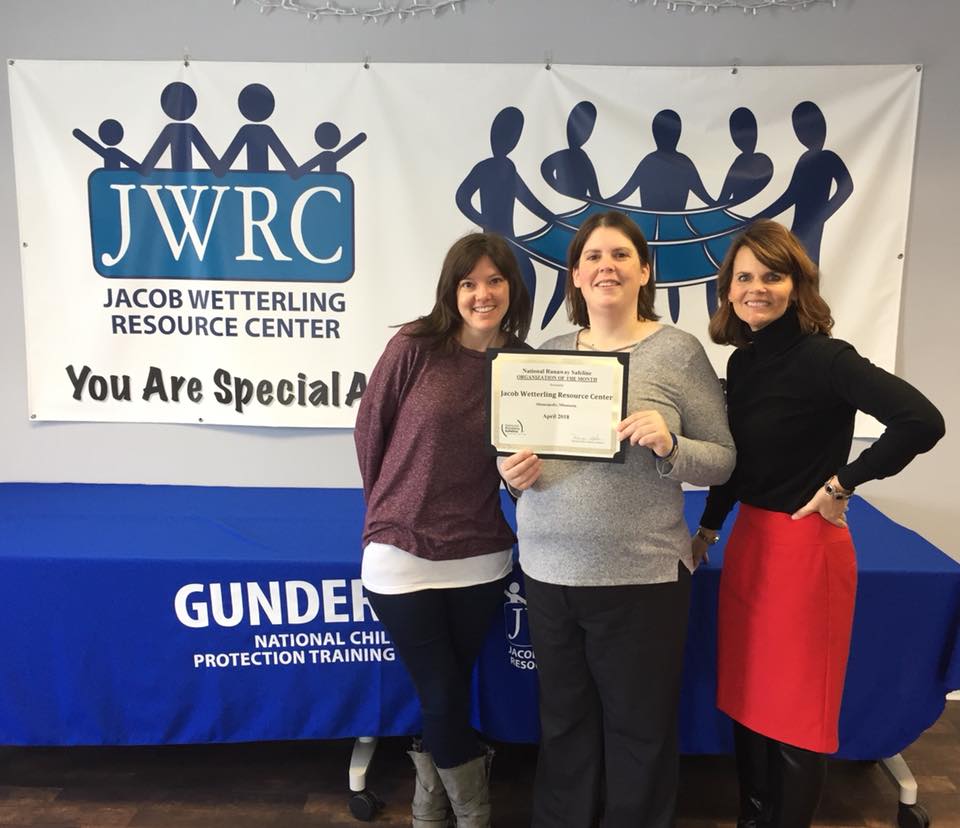
JWRC Program News & Announcements

Jacob Wetterling’s mom speaks out on son’s case, advocacy work on 20/20
As the years passed with no answers about what happened to her son, Patty Wetterling found hope in the stories of other missing children who had made it back home. "I would do anything to protect my children and all of these children," Patty told ABC News as she thumbed through old newspaper clippings.
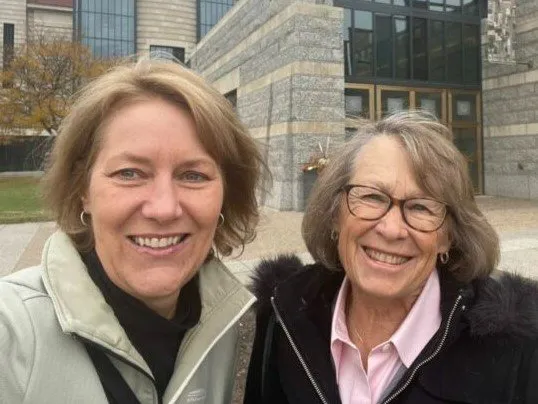
Book about Wetterling tragedy draws high praise
After seven years of on-and-off-again writing, a memoir entitled “Dear Jacob: A Mother’s Journey of Hope” that was co-written by Patty Wetterling - Co-Founder of Jacob Wetterling Resource Center - and Joy Baker will be published and released October 17, 2023.

Zero Abuse Project Staff Publishes New Book
Zero Abuse Project staff member and Director of Jacob Wetterling Resource Center, Alison Feigh, has co-authored a new book exploring the complicated issue of identifying and punishing sex crimes.
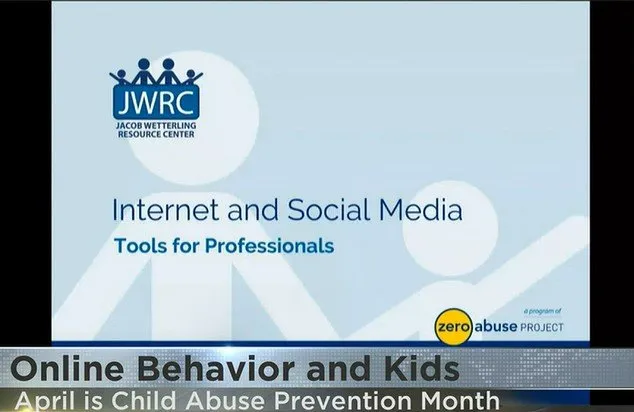
Online Behavior and Kids on NBC Affiliate
In honor of Child Abuse Prevention Month, Zero Abuse Project and Jacob Wetterling Resource Center contribute to an online seminar and discusses concerning online behaviors our kids are often engaged in, and highlights prevention practices.
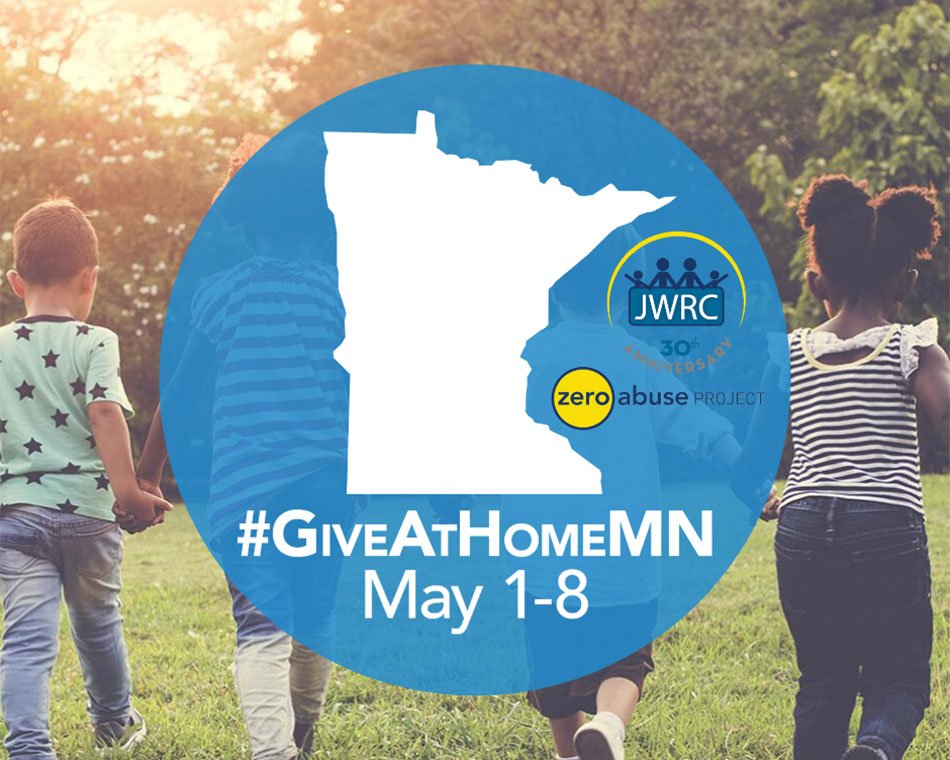
GiveAtHomeMN: Your Support is Needed!
Thank you for taking a moment to read this message. Together, we are experiencing a challenge that we have never faced before, and we understand the value of your time.
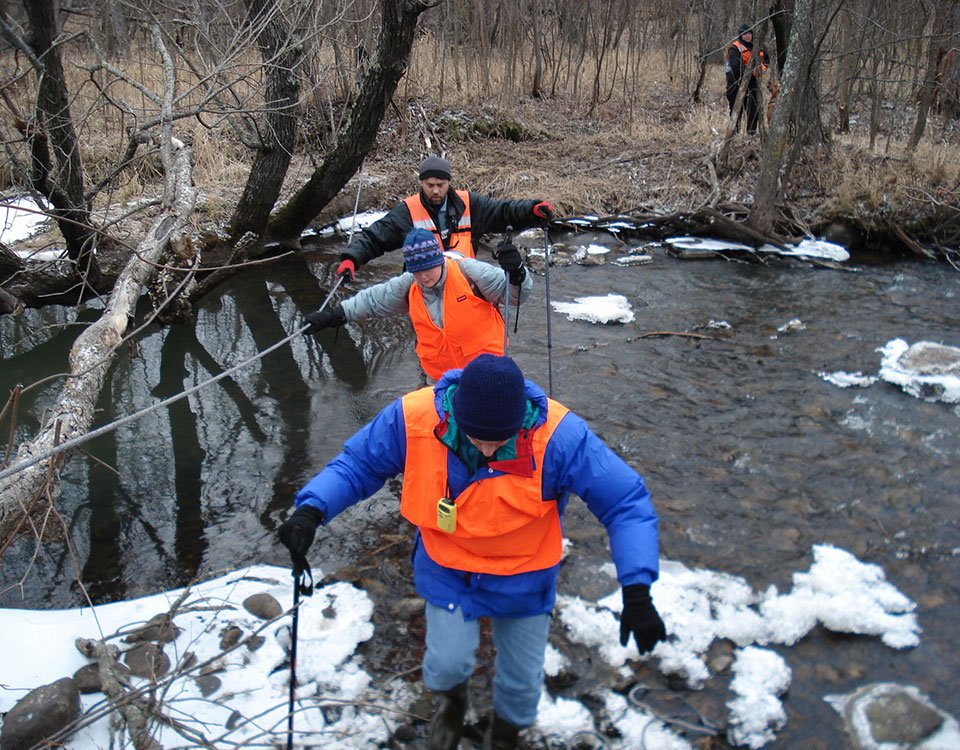
Minnesota Professional Partner Organizations: Search Rescue and Recovery Resources of MN
Search and Rescue Groups: Search, Rescue, and Recover Resources of Minnesota (SRRRMN), Midwest Technical Rescue Training Associates (MTRTA), Emergency Support Services (ESS)

Minnesota Professional Partner Organizations: MN Department of Corrections
Throughout our state, the Minnesota Department of Corrections (DOC) works diligently to contribute to a safer Minnesota.

In These Times: An Online Safety Inventory
As families work to respond to COVID-19, many parents are feeling anxious, overwhelmed, and afraid. Caregivers are trying to do what is right for their children without the benefit of a road map of what has worked well before.
Additional Resources
National Resources
- National Center for Missing and Exploited Children (800) THE-LOST
- Association of Missing and Exploited Children’s Organizations (877) 263-2620
- National Runaway Safeline (800) RUNAWAY
- US State Department (international abductions) (888) 407-4747
- Team Hope (support for families) (800) 305-HOPE
- Take Root (support for adult survivors of parent/family abduction) (800) ROOT-ORG
- National Child Abuse Prevention Hotline (800) 4-A-CHILD
- Stop It Now! (888) PREVENT
Minnesota Resources
- Jon Francis Foundation — Assistance for families with missing adult children, particularly those who go missing while camping or adventuring outdoors.
- Minnesota State Clearinghouse — (651) 793-7000 — State database of missing persons.
- Missing Children Minnesota — (888) 786-9355 — Case management and referrals for families with missing children, with expertise in family abductions.
- Midwest Children’s Resource Center — (651) 220-6750 — Medical exams and interviews for children who are abused.
Located at Children’s Hospital St. Paul - CornerHouse — (612) 813-8330
2502 10th Avenue South, Minneapolis, MN 55404 - Minnesota Children’s Alliance — (612) 615-4605
15225 Square Lake Trail N., Stillwater, MN 55082 - Prevent Child Abuse Minnesota — (651) 523-0099, or 1-800-CHILDREN
709 University Ave W., St. Paul, MN 55104
- Ain Dah Yung — (651) 227-4184 — Emergency shelter, programs and services addressing both immediate and long-term needs of American Indian youth ages 5-17 1089 Portland Ave. St. Paul, MN
- Arlington House — (651) 771-7504 or [email protected] — Provides short-term emergency shelter care and counseling services for youth 11-17 years old. 712 East Larpenteur Ave., St. Paul, MN 55117
- Avenues for Homeless Youth — (612) 522-1690 — Provides shelter and transitional housing, a GLBT Host Home Program, a Minneapolis Host Home Program and a Suburban House Home Program, for youth ages 16-21.
1708 Oak Park Avenue North, Minneapolis, MN 55411 - Booth Brown House — (651) 251-3502 — Provides an emergency shelter and a transitional living program for youth ages 16-25. 1471 Como Ave. West, St. Paul, MN 55108
- Breaking Free — (651) 645-6557 — Provides shelter and services for female youth ages 14-18 that have been victims of abuse and commercial sexual exploitation (prostitution/sex trafficking) and need assistance escaping the violence in their lives. 770 University Avenue West. St. Paul, MN 55104
- Bridge for Youth (only serves youth under age 18) — (612) 377-8800 — Provides an emergency shelter, family reunification programs, transitional living programs, youth housing programs and youth counseling.
1111 West 22nd Street, Minneapolis, MN 55405 - Division of Indian Work — (612) 722-8722 — Serving the American Indian population in the Minneapolis metro area.
1001 E. Lake Street, Minneapolis, MN 55407 - Face to Face — (651) 772-5555 — Provides youth ages 11-23 with health care, counseling and programs for homeless youth.
308 Prince Street St. Paul (SafeZone Drop-In Center), 1165 Arcade Street St. Paul (Main Offices) - Family Partnership TeenPRIDE — (612) 728-2080 — Support groups and education for young women who are at-risk of being sexually exploited or are victims of survival sex.
414 South 8th St. Minneapolis, MN 55404 - Catholic Charities-Hope Street — (612) 204-8211 — Offers 24 hour/7 days per week, short-term emergency shelter for youth ages 16-20, case management, youth advocacy, transitional housing, outreach services for youth experiencing homelessness, life skills training, employment services, and parenting skills.
- The Link — (612) 871-0748 or [email protected] — Provides self-sufficiency support for youth experiencing homelessness. 1210 Glenwood Ave, Minneapolis, MN 55405
- Lutheran Social Services — (651) 776-9805 (lifehaven for minor mothers); (651) 644-7739 (transitional housing); (651) 644-3446 (safe house shelter) — Short-term emergency shelter for youth ages 16-20, case management, youth advocacy and transitional housing. 501 Asbury Street, St. Paul, MN 55104
- Oasis for Youth — (612) 840-9225 — Provides support and assistance, including drop in center and new host home program, for youth ages 15-21 who are struggling with housing stability in Bloomington, Richfield and Edina. 2200 W. Old Shakopee Rd. Bloomington, MN
- Pillsbury House Street Survival Program — (612) 718-7521 — Works to connect youth to basic needs through their free bike program, hassle-free, youth run food shelf, and 6 month paid internship program for homeless and street engaged youth 23 years and under. Provides parenting supplies, transportation, employment opportunities.
3501 Chicago Ave. South Minneapolis, MN 55407 - SafeHaven — (952) 288-2685 — Provides residential group housing, transitional housing, permanent support housing and services for at-risk youth in Prior Lake and Burnsville
13780 McKenna Rd NW, Shakopee, MN 55379 - Seventh Landing — (612) 782-2994 (for housing information); (651) 291-3842 (for other questions) — Assists tenants in developing positive tenant skills, educational and vocational goals, and the skills necessary to maintain permanent housing
1360 West 7th Street, St. Paul MN - StreetWorks Outreach Collaborative — (612) 354-3345 — Homeless youth outreach, emergency case management, resources
1209 W. 22nd Street, Minneapolis, MN 55405 - Teens Alone — (952) 988-8336 — Provides counseling, crisis referral and youth homelessness prevention for youth ages 12-21 and their families in the Eden Prairie, Hopkins, St. Louis Park and Wayzata school districts.
915 Main Street, Hopkins, MN 55343 - Teenwise Minnesota — (651) 644-1447 or (800) 657-3697 — Provides resources for parents, teens, educators, health care providers, youth workers, media professionals and policy makers regarding adolescent sexual health and parenting.
1619 Dayton Avenue, Suite 111, St. Paul, MN 55104 - YouthLink—Project OffStreets — (612) 252-1200 — Drop in center, on-site medical clinic, transitional living program and youth housing programs
41 North 12th Street, Minneapolis, MN 55403 - YMCA Youth Intervention Services — (763) 493-3052 —Services for youth ages 10-21 that are on the run, thinking of running away, have been kicked out by their families or are homeless. The YMCA offers a transitional living program, family reunification services and advocacy.
2304 Jackson St. NE, Minneapolis, MN 55418
- Alexandra House — (763) 780-2330 — Domestic violence shelter offering support groups for teen sexual assault survivors.
- Bridge for Youth (only serves youth under the age of 18) — (612 ) 377-8800 — Provides an emergency shelter, family reunification programs, transitional living programs, youth housing programs and youth counseling.
1111 West 22nd Street, Minneapolis, MN 55405 - Cornerstone — (952) 884-0330 — Domestic violence shelter offering multiple groups support groups for kids, and parenting groups.
- Face to Face — (651) 772-5555 — Counseling for ages 11-23. Sliding fee scale.
1165 Arcade St., St Paul MN 55106 - NAMI Minnesota
- Sexual Violence Center — (612) 871-5111 24-hour crisis line
- The Family Partnership — (612) 339-9101 — Counseling for all ages, specializing in crisis counseling, GLBT, early childhood, family violence, violence prevention.
414 South 8th Street, Minneapolis, MN 55404 - Teens Alone — (952) 988-4086 — Crisis counseling and referrals for teens and families in Eden Prairie, Hopkins, St. Louis Park, and Wayzata.
- Tubman Family Crisis and Support Services — (612) 825-3333 — Domestic violence shelter offering trauma support groups for children and teens.
- Wilder Foundation — (651) 280-2051 — Outpatient mental health for children 0-17
451 Lexington Pkwy N, St Paul, MN 55104
- Big Brothers Big Sisters of the Twin Cities — (651) 789-2400 — Mentoring for youth; paired with individuals, couples/pairs of volunteers, and families.
2550 University Avenue, Suite 410N, St. Paul, MN 55114 - Greater Minneapolis Crisis Nursery — (763) 591-0100 — Temporary crisis child care for residents of Hennepin County.
5400 Glenwood Ave, Golden Valley, MN 55422 - Office of Justice Programs (OJP) Crime Victim Reparations — (888) 622-8799 — Financial assistance for victims of violent crime occurring in Minnesota.
- Southern Minnesota Regional Legal Services — (651) 222-5863 — Legal assistance regarding government programs, housing, family law, consumer issues, homeless issues, and other. For residents of St. Paul and rural Southern MN.
55 E 5th St, St Paul, MN 55101 - Survivor Resources — (651) 266-5674 — Services for families of murder, suicide, and accident victims.
Spanish Resources
Personas Desparecidas
Jon Francis Foundation
Asistencia para las familias con hijos adultos que están desaparecidos , especialmente, para los niños que desparecen durante las actividades en campo abierto.
Minnesota State Clearinghouse
(651) 793-7000
El base de data para el estado de Minnesota de las personas desaparecidas.
Missing Children Minnesota
(888) 786-9355
Manejo de caso y referencias para las familias con niños desparecidos. La organización tiene experiencia con los secuestros familiares.
El Abuso de los Niños
Midwest Children’s Resource Center
(651) 220-6750
Está en Children’s Hospital St. Paul. Los exámenes médicos para los niños que son abusados.
Prevent Child Abuse Minnesota
(651) 523-0099, o 800-CHILDREN
709 University Ave W., St. Paul, MN 55104
Los refugios para los Jóvenes que Escaparse de Casa
Ain Dah Yung
(651) 227-4184
1089 Portland Ave, St. Paul, MN 55104
Un refugio por los jóvenes que son americanos nativos.
Avenues for Homeless Youth
(612) 522-1690
1708 Oak Park Avenue North, Minneapolis MN 55411
Los servicios y un refugio para los jóvenes entre las edades de 16 y 21.
Breaking Free
(651) 645-6557
Los servicios apoyados, terapia, y un refugio para las mujeres y chicas que están escapando la prostitución.
The Bridge for Runaway Youth
(612) 377-8800
111 West 22nd Street, Minneapolis MN 55405
Un refugio y terapia para los jóvenes que escaparse de la casa y sus familias.
La Salud Mental para los Jóvenes
Alexandra House
(763) 780-2330
Un refugio para los víctimas de la violencia doméstica. Ofrece reuniones de apoyo para los jóvenes que son sobreviviente del asalto sexual.
Cornerstone
(952) 884-0330
Un refugio para los víctimas de la violencia doméstica que ofrece reuniones de apoyo para los niños y grupos que enseñar la capacidad para cuidar de los niños.
Face to Face
(651) 772-5555
1165 Arcade St., St Paul MN 55106
La terapia para los jóvenes entre la edad de 11 y 23. El precio depende de la situación monetaria de cada familia.
The Family Partnership
(612) 339-9101
414 South 8th Street, Minneapolis, MN 55404
Terapia para todas de las edades- se especializa en la terapia crisis, para los gay, lesbianas, bisexuales, la violencia familiar, la infancia temprana, y la prevención de la violencia.
Teens Alone
(952) 988-4086
La terapia y las referencias para los jóvenes y las familias en Eden Praire, Hopkins, St. Louis Park, y Wayzata.
TeenPRIDE
(612) 339-9101
4123 East Lake Street, Minneapolis 55406
Un reunión de apoyo para las chicas y las mujeres entre las edades de 13-18 que están escapando de la prostitución.
Tubman
(612) 825-3333
Un refugio de la violencia doméstica que ofrece reuniones de apoyo de trauma para los jóvenes.
Wilder Foundation
(651) 280-2051
451 Lexington Pkwy N, St Paul MN 55104
La salud mental para los pacientes externos para los jóvenes entre las edades de 0 y 17.
Otros Servicios
Big Brothers Big Sisters of the Twin Cities
(651) 789-2400
2550 University Avenue, Suite 410N, St. Paul MN 55114
Mentores para los jóvenes
Greater Minneapolis Crisis Nursery
(763) 591-0100
5400 Glenwood Ave, Golden Valley, MN 55422
Cuidado de los niños temporal y crisis para los residentes del condado de Hennepin
Office of Justice Programs (OJP) Crime Victim Reparations
(888) 622-8799
La asistencia monetaria para los víctimas de los crimines violentes en Minnesota.
Southern Minnesota Regional Legal Services
(651) 222-5863
55 E 5th St, St Paul MN 55101
Asistencia legal para los programas del gobierno, la vivienda, el derecho familiar, temas de consumidor, y temas para las personas sin techas. Para las personas que viven en St. Paul and y los lugares rurales en el sur de Minnesota.
Survivor Resources
(651) 266-5674 Servicios para las familias que han experimentado un asesinato, suicido, o son víctimas del accidente.
Es una responsabilidad fuerte para asegurar que los niños y los jóvenes pueden medrar en una comunidad de fe. La importancia de estableciendo y mantenido lugares seguros para todos los miembros, especialmente las personas que no pueden protegerse a sí mismos, es una cosa que necesita cuidada y atención.
Preguntas para discutir dentro de su comunidad de fe:
Hable con los líderes en la comunidad de fe sobre las políticas y cursillos de formación que existen en la organización. Para tomar medidas y mantener un lugar seguro para todas personas, use las preguntas que seguir. No es una lista completa, pero son un lugar para empezar la conversación sobre la seguridad y asistir con las políticas.
Las Políticas:
- ¿Nuestra comunidad de fe tiene una política escrita sobre la prevención del abuso sexual de los niños y una política que explica como proseguir si hay una acusación del abuso?
- ¿Ofrecemos cursillos de formación sobre la prevención del abuso de los niños y los procedimientos de denunciar?
- ¿Nuestros niños son educados de la prevención del abuso y los límites personales?
- ¿Tenemos cursillos de formación y directriz para los ministerios que incluyen los adultos que no pueden salir la casa o con personas que reciben cuidado pastoral?
- ¿Tenemos un horario visible de los ministerios y los reuniones del grupo que ofrecemos?
- ¿Los ministerios nuevos son aprobado antes de empezar los reuniones?
- ¿Por cuanto tiempo deben los voluntarios participan en la comunidad de fe antes de pueden asistir con los programas del niños y los jóvenes?
- ¿Hay una persona escogida o designada que pueden tratar los denuncios o responder a las preguntas sobre el abuso o los interés de la conducta?
- o Cuando contratamos el personal o los voluntarios, ¿tenemos una comprobación de antecedentes y un proceso de entrevista?
- ¿Personas entienden que siempre denunciamos a una agencia externa (los servicios de protección de menores o la vigilancia de las leyes) en conjunto con las notificaciones dentro de la comunidad cuando hay abuso de menores?
Los Costumbres:
- ¿Hay un requisito que hay un mínimo de dos adultos durante todos los ministerios con menores?
- ¿Los lugares para reuniones y áreas para jugar son visibles a otras personas? ¿Debemos añadir más ventanas a las puertas donde tenemos reuniones?
- ¿Qué son las regulaciones sobre el acceso de nuestro edificio? ¿Quien tiene acceso a las llaves?
- ¿Visitamos los ministerios al azar para verificar? ¿Hay personas específicas que puede vigilar los programas?
- ¿Quien tiene la responsabilidad de dirigir y filtrar las solicitudes para la personal y los voluntarios? ¿Todos los voluntarios han tenido una comprobación de antecedentes y no están en el archivo de los delitos sexuales?
- ¿Llamamos las referencias para empleados nuevos o para voluntarios que quieren trabajar con los menores?
- ¿Hay maneras en que las personas condenado por delitos sexuales son vigiladas y supervisadas dentro de la comunidad de fe para asegurar la seguridad de los menores?
Si está en el área de Minnesota y tiene interés en un orador que puede hablar con su comunidad de fe sobre el tema de la prevención del abuso sexual, por favor, llame el Jacob Wetterling Rescource Center.
Los Niños
- Hablas con sus padres sobre el Internet. Aprenden juntos. Sitios como www.netsmartz.org son lugares buenos para empezar.
- Sé simpático. No escribas cosas en línea que son malas o pueden causar daño a otras personas. No respondas a las personas que usan el internet para ser malas o groseras, pero hablas con un padre o un adulto de confianza.
- Si veas un mensaje o una imagen que causa un sentimiento malo en tu estómago, di un adulto de confianza en seguida.
Los Adolescentes
No compartas información emocional o privada en el internet. Si te sientes incómodo cuando escribes o pones algo en el internet, no lo pongas en el internet.
- Recuerdas que eres responsable para tu huella en línea. Cosas que escribes hoy pueden tener un impacto en tu vida personal, profesional, o académica en el futuro.
- Escuchas a su estómago. Si algo parece ser demasiado bueno, es posible que es la verdad. No acuerdes conocer una persona del internet en el mundo real sin el permiso o participación de tu padre.
- Ayudas crear una experiencia seguro en línea para otras personas. Pueden tener éxito con este objetivo cuando no continuar los mensajes que son molestando, acosando, o causan daño. Si recibes un mensaje de ciberacoso, no respondas. Denuncias la situación a un adulto para ayuda. Este conducta puede ser ilegal.
- Los adultos que quieren mantener su seguridad y tienen sus mejores intenciones en su mente, quieren ser un mentor en vez de un novio. Si un adulto quiere empezar una relación romántica, del internet o en el mundo real, dejas la situación y hablas con un padre o otro adulto de confianza sobre que pasó.
Los Adultos
- El internet no es totalmente malo. Aunque las amenazas del internet son abrumadoras, recuerda que un padre que participe pueden ser un factor protector y puede ayudar cuando trata mantener la seguridad de los niños en el internet. La computadora debe ser en un cuarto público, con reglas y exceptivas que toda la familia entiende. Puede usar software de bloqueo y ayudar con la disminuyendo de los mensajes o fotografías inadecuado. Pero, el software no tiene la habilidad encontrar todos de los materiales inadecuados. La participación de los padres es necesario para mantener la seguridad de los niños cuando están en línea.
- Pase tiempo con su niño o adolescente y aprenden juntos. Cuando vea las experiencias de sus jóvenes de sus perspectivas, es posible entender como ellos se interaccionan con otras personas en línea. Debe tener los correos electrónicos y las palabras de pase para las cuentas en línea. Si el adolescente tiene su permiso tener un sitio de redes sociales, pase tiempo con frecuencia y discutir su página y lista de amigos.
- Comunicación buena es la clave- durante todas de las edades. Los niños más pequeños pueden encontrar imágenes inadecuados, y los adolescentes tienen el riesgo de participar en un foro de discusión, recibir solicitaciones, o tener problemas con el ciberacoso. Si aprende que su niño o adolescente tiene contacto con algo inadecuado en el internet, hable, y mantenga límites. Ellos deben saber que cuando hay una situación no deseada, ellos pueden dejar el sitio y hablen con un padre sobre la situación.
- Denuncia la conducta ilegal del internet. Informe a sus niños que su seguridad en el internet y en el mundo real es importante. Similar como usar la policía para denunciar un peligro en el mundo real, use Cybertipline a (800) 843-5678 o el sitio de web www.cybertipline.org para denunciar los crimines del internet contra los menores. En Minnesota, puede denunciar a Minnesota Internet Crimes Against Children (ICAC) at (651) 793-1060.
Los juegos de “Qué harías sí” son una manera buena para asistir los niños y adolescentes de pensar en situaciones que pueden ser peligrosas. Adultos pueden usar “Qué harías sí” para empezar conversaciones con niños y adolescentes cuando están en un coche, un mercado, o durante tiempo juntos.
Los juegos de “Qué harías sí“ son más efectivo cuando use con frecuencia y en situaciones sin amenanza . Mantenga una voz positiva y anime a sus hijos. Les pregunte a sus hijos las preguntas de “Qué harías sí” que sigue y eschue a las respuestas.
No hay solamente una respuesta corecta. Tenemos algunos puntos que puede compartir con sus niños para em-pezar la conversación. Pero, mantenga las conversaciones con sus propias ideas. Es una manera buena para sostener el diálogo en la casa.
¿Qué harías si…?
…el amigo de tu hermano te da $20, pero te dice que necesitas guardarlo en secreto?
No hay una situación para tener un secreto de sus padres. Si hay alguien que quiere que matengas un secreto de sus padres, habla con un adulto de confianza inmediatamente. Puede discutir con sus niños sobre las diferencias entre un secreto y una sorpresa. Sorpresas son cosas para guardar en silencio por un pocito tiempo, y personas son felices cuando ellos aprenden de la sorpresa— como una fiesta de cumpleaños de sorpresa. Secretos son cosas que necesitas mantener en silencio por un tiempo largo, y algunas veces, por siempre. Sorpresas son buenas, pero los secretos no son.
…alguien te manda una foto del Internet y te sientes incómodo?
No borres el correo electrónico o la conversación, apaga la computadora y habla con tus padres o guardín sobre que pasó. No contestes los mensajes peligrosos o ofensivos. Depende del tipo de foto que recibiste, un adulto puede hablar con la policía sobre la situación. CyberTipline a (800) 843-5678 o www.cybertipline.org pueden recibir reportes de imagenes ilegal o crimines por internet ilegal contra los niños o adolescentes.
…tu vecino te pregunta si quieras un paseo de coche despúes de la escuela a tu casa para?
Debe confirmer con tu padre o guardían antes de salir con alguien— aun si conoces la persona. Puedes inventar un clave especial que solamente tu familia sabe, como “palomitas.” No salgas con una persona que no sabe el clave.
…hablas con adulto sobre algo que te causa tener miedo, pero el adulto no te cree?
Es posible que adultos no sepan como guardar la seguridad y felicidad de los niños. Mereces vivir en seguridad y compartir tus sentimientos con adultos de confianza. Si necesitas, hablas con tu maestro o entrenador hasta que encuentes una persona que puede ayudarte.
…hay alguien que te espia cuando jueges en un parque con tus amigos y tienes miedo?
Ten confianza en tus sentimientos. Huye el parque con tus amigos, y usa el sistema del amigos. Habla con tus padres o guarídan y explica que pasó. Tus amigos deben hablar con sus padres o guardían y explicar las ra-zones de huir y donde están jugando ahora.
¿Si usted y su niño están separados en el púbico, su niño sabe como preguntar a un desconocido para ayuda?
Les enseñe a sus niños buscar un empleador con una etiqueta de nombre o una madre con otros niños cuando necesitan ayuda si ellos tienen miedo o están solos. Los niños deben saber como preguntar un adulto para ayuda sin mudarse del lugar donde fueron perdidos.
Los jóvenes deben saber como hablar con un desconocido y saben obtener la ayuda cuando la necesitan.
Aquí, es una lista de razones que el JWRC no recomienda que los padres usan la lección de “El Miedo de los Desconocidos” con sus niños:
- Los menores tienen un imagen de un “desconocido” (un hombre con un abrigo largo en un callejón oscuro), y si la persona no tiene la imagen de un “desconocido”, es posible que el niño no conecte la lección a la persona.
- La mayoría de los abusos sexuales y los secuestros de menores son cometidos por las personas que saben la familia o el niño.
- Los niños reciben mensajes variadas cuando ellos piensan que no pueden hablar con los desconocidos, pero hay expectaciones que ellos hablan con personas que no conocen (los padres de amigos, y el conductor del autobús escolar)
Les Enseñe a sus Niños Tener Confianza en su Intuición:
Hable con sus niños sobre el tema de como una persona pueden causar un sentimiento, en vez de como los niños conocen la persona. Si el niño tiene un sentimiento malo en su estómago cuando están cerca de una persona, los niños deben dejar la situación y hablar con un adulto de confianza hasta que los niños reciben ayuda.
Antes de recibir un regalo, salir con alguien, tomar una foto, ir en un coche, el niño debe consultar con un padre antes de cumplir la acción. Los niños deben saber que los adultos preguntan otros adultos para ayuda. Si la persona que ofrece un paseo por coche no permite que el niño consulte primero, el niño deben saber que esta bien decir “no” a un adulto y debe hablar con un adulto de confianza.
Les enseñe a los niños las diferencias entre una sorpresa y un secreto. Las sorpresas son divertidas- como una fiesta de sorpresa, un regalo de sorpresa; y estas cosas son buenos y no hable por un poco tiempo. Secretos son diferentes. No hay una razón buena tener un secreto de su padre. Si una persona quiere que mantengas algo en secreto de un padre, es una indicación que necesitas hablar con su padre inmediatamente.
Diga a sus niños que la mayoría de las personas en el mundo son personas buenas que quieren que ellos crezcan seguros y fuertes. Ellos deben ser preparados, no asustados, para hablar con los desconocidos cuando necesitan ayuda, tienen miedo, o están perdidos.


Recommended Reading
“I Can Play it Safe” by Alison Feigh***
(Teaching kids about personal safety without making the world a scary place)
“On Those Runaway Days” by Alison Feigh***
(Steps for children to take when life seems overwhelming)
“My Body Belongs To Me” by Jill Starishevsky
(A book for children about their bodies. It assures children it is okay to tell)
“The Runaway Bunny” by Margaret Wise Brown
(Providing children with a sense of security)
“I Can Make A Difference: A Treasury to Inspire Our Children” by Marian Wright Edelman
(A compilation of stories from a variety of cultures about children making the world a better place)
“It’s My Body” by Lory Freeman
(A book for young children on what to do about uncomfortable touches)
“A Very Touching Book” by J. Hindman
(What to do if there is “secret” touching; introduces and uses correct terms for genitals)
“Amazing You: Getting Smart About Your Private Parts” by Gail Saltz
(Basic body awareness for small children)
“Your Body Belongs To You” by Cornelia Spelman
(Suitable for young children; body ownership and touching)
“My Body is Private” by Linda Walvoord Girard and Rodney Pate
(Giving children ownership of their bodies)
“I Promise I’ll Find You” by Heather Patricia Ward
(Comforting; how a child is found if lost or separated from parents)
“My Body is Special and Belongs to Me!” by Sally Berenzweig and Cherie Benjoseph
(The conversation all parents want to have with their children about safe touch, body boundaries, secrets and the importance of their Circle of Safe Adults. Includes section for adults.) For Ages 4 through 10
“Jack Teaches His Friends to Be Kidsafe!” by Sally Berenzweig and Cherie Benjoseph
(An introduction to the KidSafe Language of Safety – allowing children and parents to open up the dialogue regarding making safe and smart choices and their personal safety.) For ages 5 through 11
“Life Freaks Me Out and then I Deal With It” by K.L. Hong
(Personal memoir about being a teenager and lessons learned along the way)
“Silver” by Norma Fox Mazer
(Fiction book about a junior high student who has a friend disclose sexual abuse)
“Katie.com” by Katherine Tarbox
(A teenager’s story about her own experience with Internet exploitation)
“Connect 5” by Kathleen Kimball-Baker, Forward by Patty Wetterling
(The importance of caring mentors in teenagers lives)
This Hurts Me More Than It Hurts You: In Words and Pictures” by Nadine A. Block, with Madeleine Y. Gomez
(Children share how spanking hurts and what to do instead)
“The Bully, The Bullied, and The Bystander: From Pre-school to High School – How Parents and Teachers Can Help Break the Cycle of Violence” by Barbara Coloroso
(Tool for parents and teachers to prevent bullying in their homes & schools)
“The Gift of Fear” by Gavin De Becker
(How to use your gut instinct and intuition to keep you safe from harm)
“Protecting the Gift: Keeping Children and Teenagers Safe and Parents Sane” by Gavin De Becker
(How to help nurture your child’s gut instinct as a protective factor – suitable for teens and parents)
“How to Talk so Kids will Listen and Listen so Kids Will Talk” by Adele Faber and Elaine Mazlish
(Tested strategies to use for better parent/child communication)
“Dads and Daughters: How to Inspire, Understand, and Support Your Daughter” by Joe Kelly
(Guidance for Fathers on how to be a strong support for their daughters)
“Tag You’re It! 50 Easy Ways to Connect with Young People” by Kathleen Kimball-Baker
(Commonsense ideas for supporting young people in your community)
“Parents Preventing Abuse” by Dr. Jaime Romo
(E-book that guides parents to mitigate the conditions that allow child sexual abuse and prevent abuse of their children. This title is available on Kindle, Lulu, and ibooks)
“Why DO They Act That Way? A Survival Guide to the Adolescent Brain” by David Walsh, Ph.D.
(Explains the biological changes in a teen’s brain during adolescence and how a parent can use that information to stay better connected to their teen)
“NO: Why Kids—of All Ages—Need to Hear It and Ways Parents Can Say It” by David Walsh, Ph.D.
(How to set age-appropriate limits for your children while emphasizing a balanced parenting style)
“Queenbees and Wannabes: Helping Your Daughter Survive Cliques, Gossip, Boyfriends and Other Realities of Adolescence” by Rosalind Wiseman
(A crash course on the challenges of being an adolescent girl with specific steps for parents to take to be a strong support during the tougher times)
Ready to Get Involved?
We are always looking for new partnerships and leaders to help make a difference in the lives of children through our Jacob Wetterling Resource Center programs. Contact us today to see how we can work together towards a safer future for everyone.
